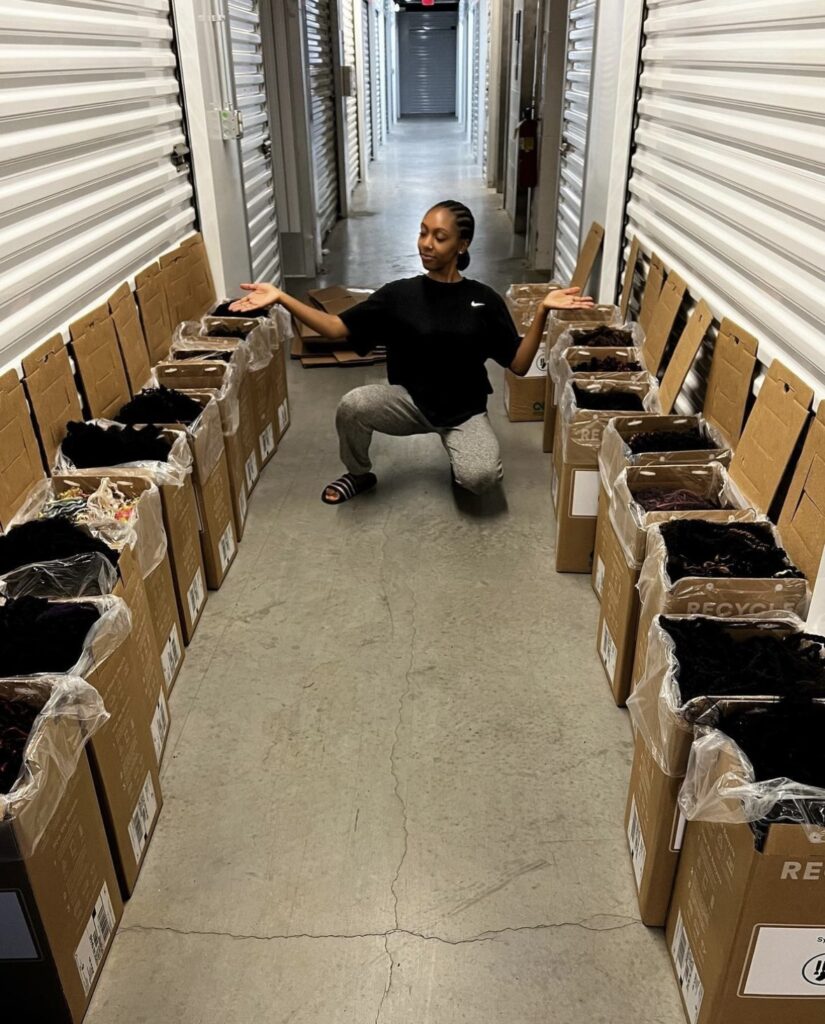
This month, the Howard University Student Association (HUSA) collaborated with Rebundle, encouraging students to contribute their used synthetic braiding hair.
Following the donation of plastic and synthetic hair, HUSA’s sustainability department will carefully pack them for dispatch to the Rebundle Recycle Program, initiating the recycling journey. Once received, these materials will undergo downcycling, transforming into outdoor furniture, decking and other sustainable products.
Rebundle, a plant-based braiding hair company, says that approximately 30 million pounds of synthetic plastic hair are in U.S. landfills yearly.
The 63rd HUSA director of sustainability, Kimora Oliver, a senior biology major and chemistry minor from Hayward, California, expressed her excitement about their collaboration.
“We want to teach and provide students with ways they can be sustainable on campus, so initiatives such as this one are like, ‘Oh, when I’m done taking out my braids, I can donate it where it will be repurposed instead of just throwing it away,’” Oliver said.
Ciara Imani May, the founder of Rebundle, embarked on a journey after experiencing scalp irritation and a desire for a more environmentally friendly product.
“As someone who struggled with scalp irritation from plastic synthetic hair, I wanted to create a solution to this problem that was also environmentally friendly,” she said. “I knew that if I was experiencing this discomfort from synthetic hair extensions, I wasnʼt the only one.”
May said that she created Rebundle out of a need for non-toxic hair extensions and also to address the environmental and health disparities that disproportionately affect the Black community.
Common braiding hair brands like X-Pression, Bobbi Boss and Janet Collection are typically 100 percent Kanekalon hair. According to Carol’s Daughter, a haircare brand, synthetic hair is crafted overseas using synthetic fibers manufactured through chemical processes, which aim to replicate the appearance and texture of natural hair, offering diverse colors and textures for braided hairstyles.
Notably, this hair is associated with modacrylic fiber, composed of acrylonitrile and vinyl chloride. The Environmental Protection Agency (EPA) identifies acrylonitrile as a potential cancer risk, while the National Cancer Institute directly links vinyl chloride to various cancers, including ovarian and breast cancer.
The National Cancer Institute also found that using hair straighteners (perm or relaxers) and hair dye can lead to various cancers.
May shared that the company’s overall goal is transparency about what goes into their products.
“Rebundleʼs hero product, braidbetter, is a non-toxic and sustainable alternative to synthetic hair made with biodegradable ingredients, namely banana fibers,” May said. “Most synthetic hair is made by extruding plastic filaments, such as polyvinyl chloride (PVC), in different parts of Asia, whereas we are Black-owned and operated.”
In addition to the partnership, Rebundle is offering a 20 percent discount on braiding hair, exclusively for Howard students.
The bins to donate braiding hair are in the Harriet Tubman Quadrangle and College Hall South lobbies for the remainder of February.
Copy edited by Jalyn Lovelady
Correction: A previous version of this article incorrectly listed a donation location. This error has been updated to provide the location accurately.

